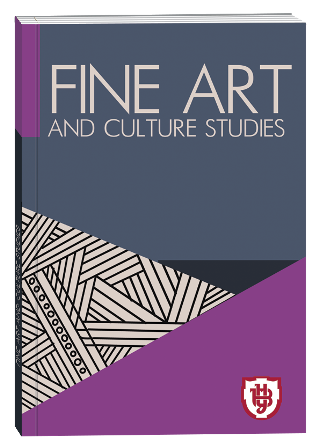«ШКОЛА ГРИ НА ФОРТЕПІАНО» ОЛЕКСАНДРА ЯКОВЧУКА
DOI:
https://doi.org/10.32782/facs-2022-2-4Ключові слова:
Олександр Яковчук, «Школа гри на фортепіано», фортепіанна педагогіка, методика навчання гри на фортепіано.Анотація
Олександр Яковчук – відомий український композитор, автор опер, балетів, симфоній, низки програмних творів для різних виконавських складів. Важливе місце у творчості митця посідає фортепіанна музика для дітей. Фортепіанні альбоми «Дикі звірі Канади», «Фортепіанні мініатюри», «Дванадцять поліфонічних п’єс», «Дуети для фортепіано в чотири руки» є цінним педагогічним репертуаром. Окреме місце в творчому доробку Олександра Яковчука для дітей посідає його «Школа гри на фортепіано», мета якої полягає в тому, що виховувати юного музиканта на сучасному матеріалі. Усі творчі знахідки цього видання є результатом практичної педагогічної роботи О. Яковчука в Югославії та Канаді, а також його знайомством з особливостями системи музичної освіти в Угорщині, Австрії, Німеччині, США. Мета роботи – визначити особливості та специфіку «Школи гри на фортепіано» О. Яковчука в аспекті основних педагогічно-виконавських завдань класу фортепіано. Методологія дослідження полягає у його спиранні на усталені історико-методологічні та теоретико-технологічні позиції української фортепіанної педагогіки та (праці Н. Гуральник та ін.) у їхньому співвіднесенні з визнаними світовими методиками у сфері фортепіанної педагогіки і виконавства Ш. Сузукі, Б. Берліна, О. Ніколаєва, а також власним багатим педагогічним досвідом автора «Школи гри на фортепіано» О. Яковчука. Наукову новизну роботи зумовлює те, що в ній розглядається цілком нове методично-педагогічне видання, нове не лише за своїм часом появи (2019 рік), але новітнє і новаторське за своїми навчально-виховними ідеями, концепція якого розкривається у цій роботі, відкриваючи можливості для української фортепіанної педагогіки позбавитися реліктів радянської методології і радянського педагогічного репертуару – до сучасних світових надбань та застосувати їх на сучасному українському матеріалі. Висновки полягають у підтвердженні концептуальної своєрідності та методологічної переконливості запропонованого автором підходу до навчання гри на фортепіано в умовах сучасної школи, що полягає в поєднанні трьох важливих складових – сфокусованості на українському репертуарі, наявності яскраво вираженого світового контексту та оригінальності запропонованого вектору технічного й естетичного розвитку юного піаніста.
Посилання
Гаран К. М. Фортепіанна музика для дітей у творчості українських композиторів. Вісник Київського національного університету культури і мистецтв. Серія: Мистецтвознавство. 2014. № 30. С. 24–31. DOI: https://doi.org/ 10.31866/2410-1176.30.2014.159816
Гуральник Н. П. Українська фортепіанна школа ХХ століття в контексті розвитку музичної педагогіки: історико-методологічні та теоретико-технологічні аспекти. Київ : НПУ, 2007. 460 с.
Кушнірук О. Перша українська «Школа гри на фортепіано». Слово Просвіти. 2020а. 12 лют. URL: http://slovoprosvity.org/2020/02/12/persha-ukrains-ka-shkola-hry-na-fortepiano/
Кушнірук О. «“Школа гри на фортепіано” Олександра Яковчука: художній та дидактичний аспекти». Програма Міжнародної науково-практичної конференції «Україна. Європа. Світ. Історія та імена в культурно-мистецьких рефлексіях». 5–7 листопада. 2020b. НМАУ імені П. І. Чайковського. Київ. 28 с.
Яковчук О. Школа гри на фортепіано. Київ : Поліграфічний центр «Фоліант», 2019. 256 с.







